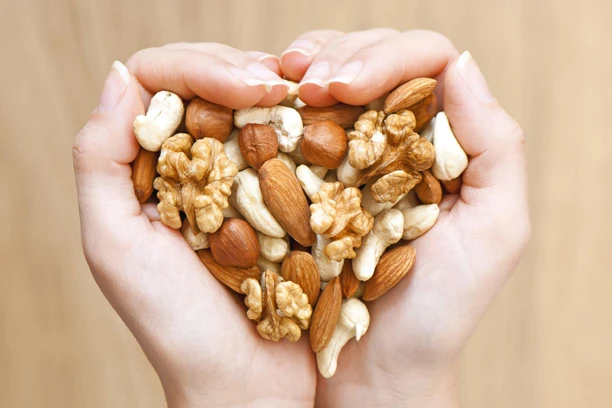Nut consumption as a component of a heart-healthy diet may be advantageous. Nuts contain unsaturated fatty acids as well as other vitamins and minerals. They also make a wonderful snack meal because they are cheap, portable, and simple to store.
Keep in mind that some nuts may be high in calories, so moderation is key. But choosing nuts over a less healthy snack may make it simpler to maintain a heart-healthy diet. This article gives a detailed description of how nuts can protect your heart.
How nuts can protect your heart?
Studies show that regular nut consumption lowers inflammation related to diabetes and heart disease. Including nuts in your diet on a regular basis may:
- Enhance artery health
- Lessen heart disease-related inflammation
- Lower your chance of developing blood clots, which can cause heart attacks and strokes.
- Reduce the chance of developing high blood pressure
- Reduce the chance of cardiovascular disease-related early mortality
- Lower levels of harmful cholesterol, particularly triglycerides and low-density lipoprotein (LDL or “bad”) cholesterol that can clog arteries.
What might make nuts heart-healthy?
Nuts are high in protein. Furthermore, the majority of nuts include at least some of these heart-healthy components:
- Unsaturated fats. Although the exact mechanism is unclear, it is believed that the monounsaturated and polyunsaturated “good” fats found in nuts help to reduce bad cholesterol levels.
- Omega-3 fatty acids. Omega-3 fatty acids are abundant in many nuts. Omega-3 fatty acids are beneficial. They could lower the chance of having a heart attack or stroke.
- Fibre. Fibre is a component of all nuts that lowers cholesterol. You eat less because fibre makes you feel satisfied.
- Plant sterols. Plant sterols, a substance that can aid in lowering cholesterol, are present in some nuts. Although sterols naturally occur in nuts, plant sterols are frequently added to foods like margarine and orange juice for added health benefits.
- L-arginine. L-arginine can also be obtained from nuts. According to some studies, L-arginine may help with cholesterol, blood pressure, and overall blood vessel health.
What’s a healthy serving of nuts?
Nuts are fatty. The calories might still mount up even though the majority of it is healthy fat. You should therefore consume nuts in moderation.
As part of a balanced diet, adults should try to consume 4 to 6 servings of unsalted almonds each week. Depending on their age, serving suggestions for children can differ. How many servings of nuts are safe for your child to consume? Ask your paediatrician.
Pick raw or dry-roasted nuts over those that have been fried in oil. A small handful (1.5 ounces) of whole nuts or 2 tablespoons of nut butter constitute one serving.
What kind of nuts should you eat?
It seems that most nuts are typically healthy. However, some may have a higher concentration of heart-healthy substances than others. Omega-3 fatty acids, for instance, are abundant in foods like walnuts.
Almonds, macadamia nuts, pecans, and hazelnuts also appear to be heart-healthy choices. So are peanuts, even though they are officially a legume, similar to beans, rather than a nut.
Pick unsalted or unsweetened nuts whenever possible. The heart-healthy properties of nuts may be negated by adding salt or sugar to them.


One Comment
Pingback: How Nuts Can Protect Your Heart – Sujata Birla Hospital